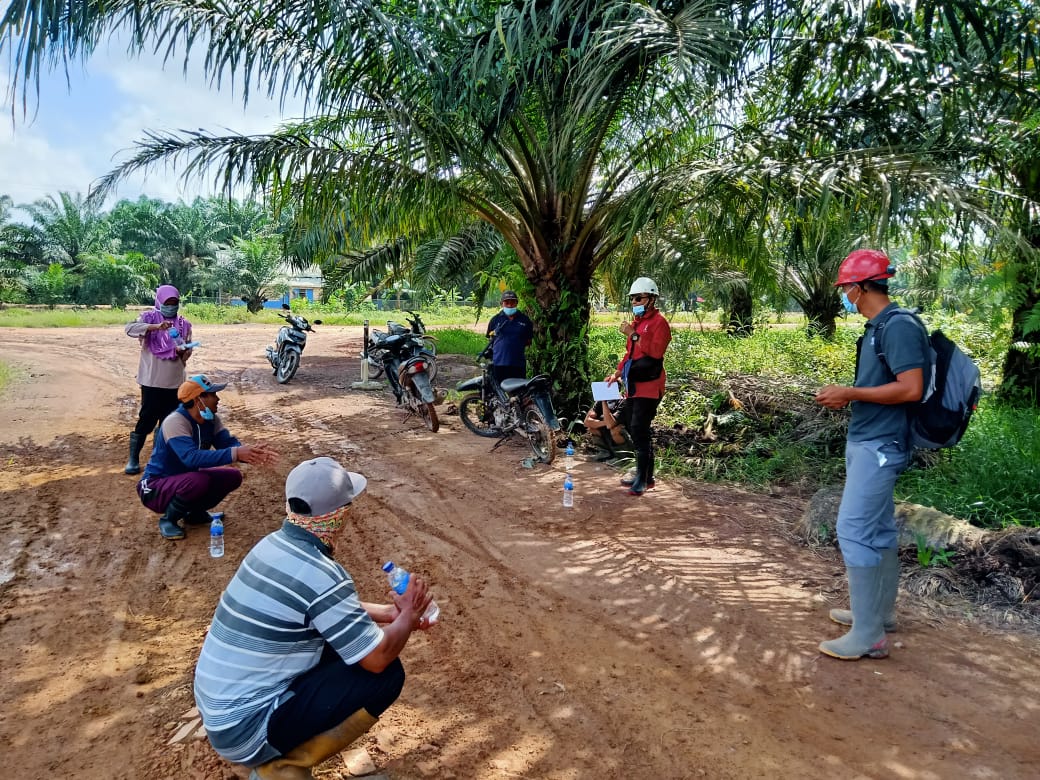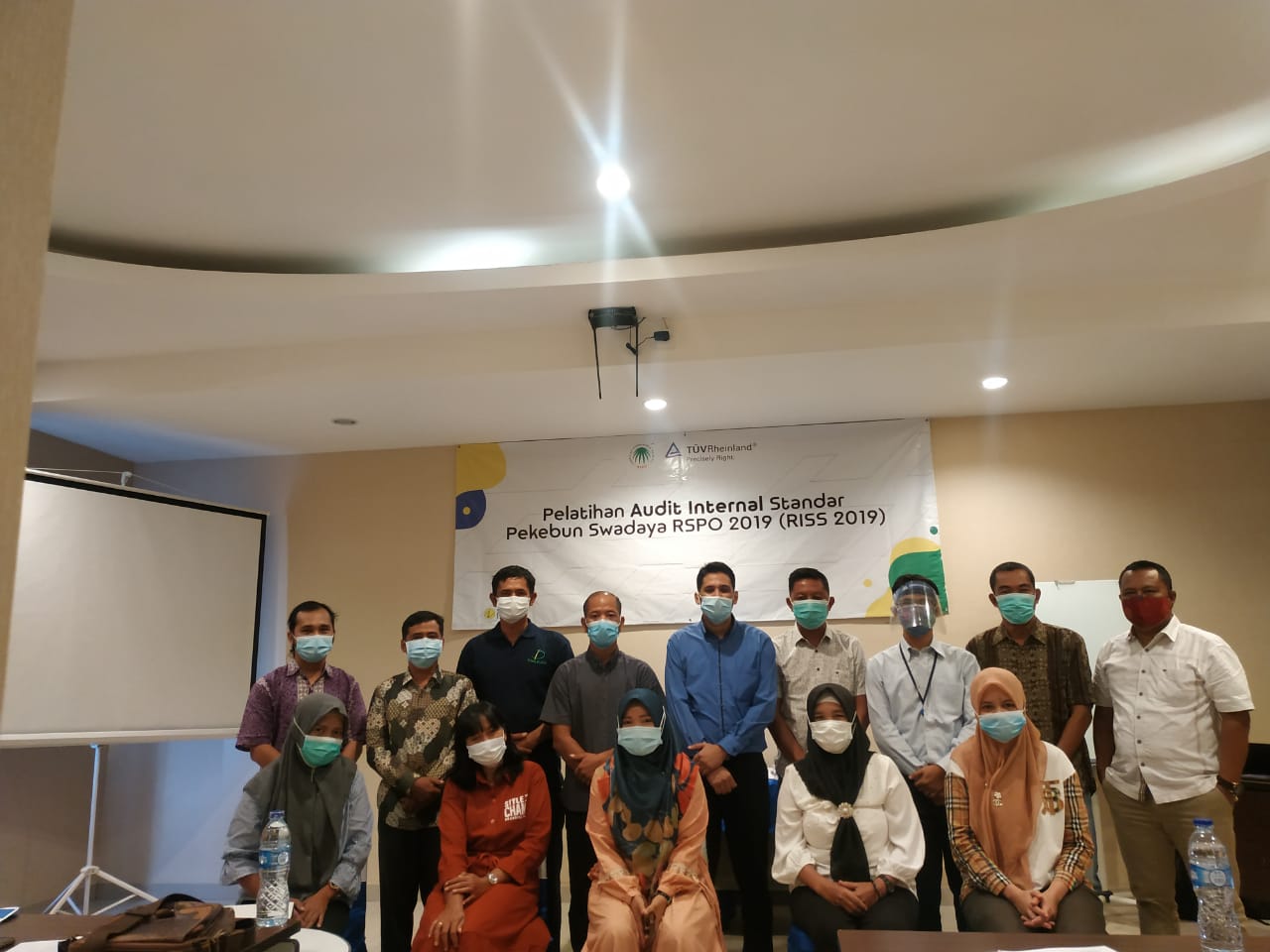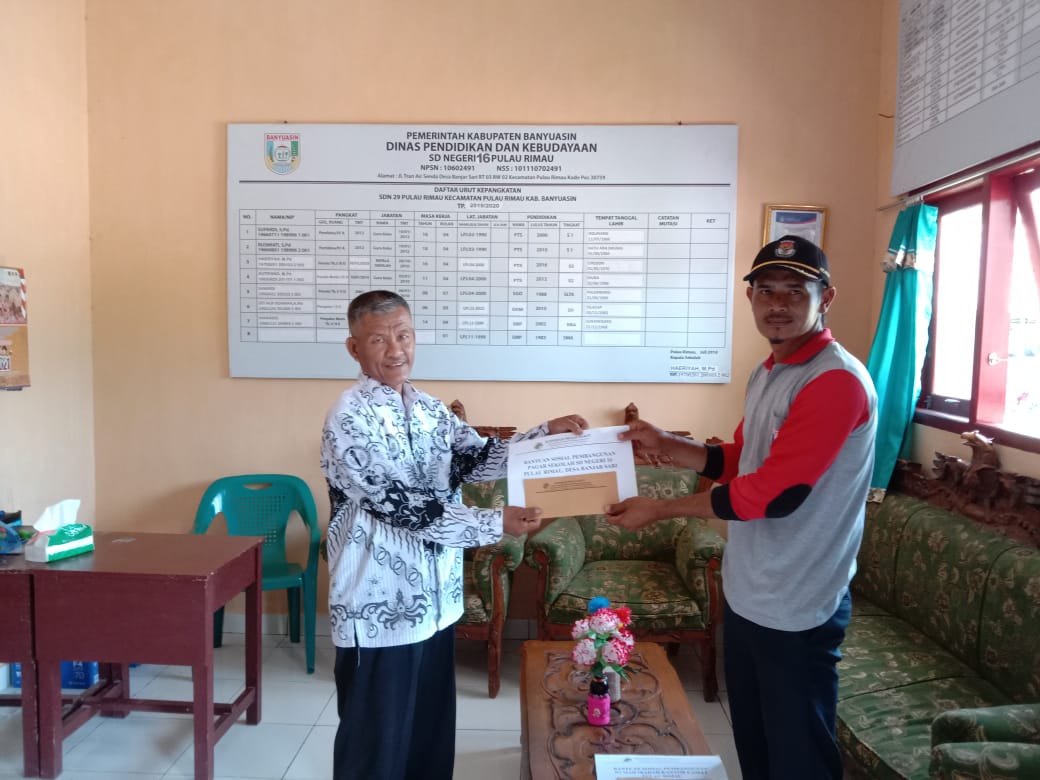
About the group
Number of smallholders: 217 (200 Men, 17 Women)
Total Land Area: 354 Ha
Status: Certified
Group location: Banjarsari Village, RT 01/RW 01, Pulau Rimau Sub-District, Banyuasin District, South Sumatera Province, Indonesia
Country: Indonesia
On-going Facilitator:
SUSTAINABILITY JOURNEY STORY
Improving community welfare through sustainable practices
Behavioural change in farming practices could yield new opportunities that improve community welfare in the area. The smallholders in Banjar Sari Village in Banyuasin District, South Sumatra, have experienced these benefits first-hand.
The farmers under one unit in the Mulia Bakti Cooperative in the village have applied sustainable practices since becoming familiar with environmentally-friendly farming methods and being socialised and trained to obtain the RSPO Certification.
The program, initially introduced to them by the international development organisation Stichting Nederlandse Vrijwilligers (SNV) in 2018, has brought new knowledge to the smallholders. SNV also facilitated the establishment of the cooperative which consists of 12 farmer groups that received training from the organisation since 2018.
Cooperative Chairman Syaibani said that even though there had initially been challenges, the members of Mulia Bakti were slowly able to adopt sustainable practices. “There’s been a series of facilitated discussions for the farmers. Examples of topics covered during the socialisation and training sessions include health and safety, harvest period, fertiliser efficiency and pest control, soil protection and preservation. Some were interested in converting while others were stubborn and cynical.”
“Farmers from different backgrounds do hold different attitudes and behaviours when it comes to environmental issues, including agricultural practices based on their knowledge”, he admitted. “In many cases, they learned most things by themselves. Converting to a new system is challenging for them. Sometimes they believe what they have been practicing is what is right,” he added.
SNV encouraged farmers to create a demonstration plot because most farmers will only be convinced of sustainable practices through clear and tangible evidence. Following a series of train-the-trainer workshops, Syaibani took part in establishing a demonstration plot. In the plot, he changed his field maintenance methods to include manual and selective-control weeding. Apart from improving ground cover, this new approach cut his herbicide use in half, decreasing costs and increasing profits.
He also experimented with planting flowers on roadsides and in drains to attract the caterpillars’ natural enemies and convinced a local community organisation to do the same. Slowly, farmers found that the ‘new’ farming style had not affected their livelihoods negatively, but instead provided better sources of revenue.
So far, these changes have resulted in a positive impact on community livelihoods and activities in the village, which is located in the Pulau Rimau Sub-district, about 100 km from Palembang, the capital city of South Sumatra.
Farmers were also trained to produce organic fertiliser from empty oil palm bunches. “The empty fruit bunches (locally called jangkos) are believed to contain elements that are beneficial for the growth of oil palm trees and can be applied as organic fertiliser to improve the soil.”
The smallholders have worked hard to achieve RSPO Certification. “There was a slight delay caused by the Coronavirus pandemic, but the audit is done. Now we are in the process of addressing the gaps identified during the audit, which is almost complete as well. We are just waiting for the certification body to issue it. I hope we can get it this year so we can find buyers for our RSPO credits.”
He expects the proceeds from the sale of RSPO credits to attract more farmers to join the cooperative. The cash gains will also give an extra boost to the cooperative who also plans to start a business unit, so it can provide capital for its members to rejuvenate their plantations in the coming years.
There are other benefits that farmers can enjoy from sustainable practices. “Mulia Bakti Cooperative is also aiming to function as a credit union, and it is expected to provide much better financial services. With better resources, more members with different needs can be assisted.”
The Cooperative members include not only oil palm growers but also those with different occupations. “Now we can also pay more attention and support members who are not farmers but work in related fields, such as pick-up truck drivers. Their livelihoods will also be improved.”
Project Impact
Total area covered by the project
354 Ha
Number of smallholders benefitting from this project
217 Smallholders
Number/percentage of women supported by this project
7.83% women in this project
How you can support
The group members are in their first year of being certified, and they are still in the process of learning. They need assistance from third parties to maintain their livelihoods while upholding sustainable practices on their plantations. Their efforts benefit downstream players such as Consumer Good Manufacturers and retailers.
Please show your support by purchasing RSPO Smallholder credits. With your help, they can be better equipped to raise awareness of the benefits of sustainable oil palm farming, while protecting the environment around us.
GROUP CONTACT
Representative Contact
Wahid Khaerul Umam | Group Manager | [email protected] |
Febri Amira
ICS
(+62) 821-8371-969
[email protected]
IMAGE GALLERY







